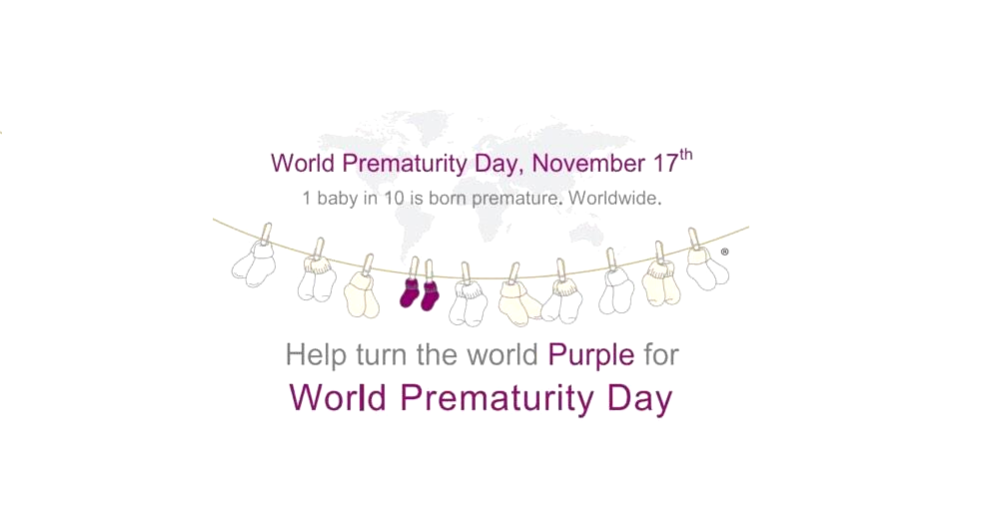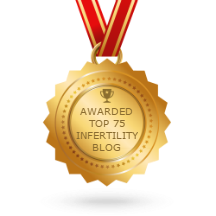World Prematurity Day – The March Of Dimes
World Prematurity Day
A premature birth is one that occurs before 37 weeks into the pregnancy. Premature birth is one of the leading causes of death in new born infants. A baby born prematurely may have several health problems, not just at birth, but during their entire life. A premature baby definitely needs to spend additional time in the hospital than babies born later. World Prematurity Day is celebrated on the 17th of November every year to raise awareness about this crisis. All through the month of November, research, treatments and community support efforts are highlighted which are done to give prematurely born babies a better chance of survival. World Prematurity Day was created by European Parent Organizations in 2008 and has been celebrated worldwide since 2011.
The earlier in pregnancy a baby is born, the more likely he is to have health problems. Some premature babies have to spend time in a hospital’s neonatal intensive care unit (also called NICU). This is the part of a hospital that takes care of sick new-borns. Advances in medical care have now made it easier for premature babies to survive better than before.
What health problems can premature babies have after birth?
Health problems that may affect premature babies include:
- Apnea: Apnea is the pausing of the breathing process for 20 seconds or more. Premature babies can suffer from apnea which can result in a loss of oxygen flow to the brain.
- Respiratory distress syndrome (RDS): Babies born before 34 weeks of the pregnancy generally tend to have this syndrome. RDS is when the babies don’t have a special type of protein in their bodies called “Surfactant” which is primarily to keep the air sacs in the lungs from collapsing.
- Intraventricularhemorrhage (IVH): This is bleeding in the brain. The bleeding occurs near the center of the brain. A ventricle is a space in the brain filled with fluid.
- Patent ductusarteriosis (PDA): This is a heart problem that happens in the connection between two major blood vessels near the heart called the ductusaterisus. If the ductus doesn’t close properly after birth, a baby can have breathing problems or heart failure.
- Necrotizing enterocolitis (NEC): This is a problem with a baby’s intestines. It can cause feeding problems, a swollen belly and diarrhea. It sometimes happens 2 to 3 weeks after a premature birth.
- Retinopath Of Prematurity: This is an abnormal growth of blood vessels in the eye. ROP can lead to vision loss.
- Jaundice: This is when a baby’s eyes and skin look yellow. A baby has jaundice when his liver isn’t fully developed or isn’t working well.
- Anemia: This is when a baby doesn’t have enough healthy red blood cells to carry oxygen to the rest of the body.
- Bronchopulmonary dysplasia (BPD): A BPD occurs when babies can develop fluid in the lungs and damage to the lungs.
- Infections. Premature babies often have trouble fighting off germs because their immune systems are not fully formed. Infections that may affect a premature baby include pneumonia, a lung infection; sepsis, a blood infection; and meningitis, an infection in the fluid around the brain and spinal cord.
How can you best care for your premature baby?
A premature baby needs to have the utmost care and attention. Even if the baby is not showing any signs of problems, a premature baby needs to spend some time at the hospital in the Neonatal Intensive Care Units. To ensure your baby can go home check the following:
- Weighs at least 2.5 Kgs
- Is able to generate enough body heat to keep themselves warm.
- Can breastfeed or bottle-feed
- Gains weight steadily (1/2 to 1 ounce each day)
- Can breathe on his own
Your baby may need special equipment, treatment or medicine after he/she leaves the hospital. Your baby’s provider and the staff at the hospital can help you with these things and teach you how to take care of your baby. They also can help you find parent support groups and other resources in your area that may be able to help you care for your baby.
One Comment
-
Know All About UTI's | Best Urology Department In Nagpur, India |





 (+91) 880 557 7600
(+91) 880 557 7600
 Abhyankar Road, Dhantoli, NAGPUR-12
Abhyankar Road, Dhantoli, NAGPUR-12





